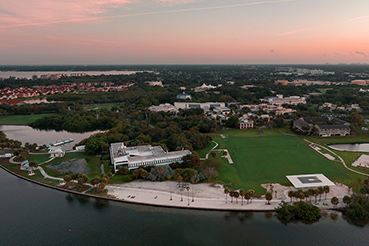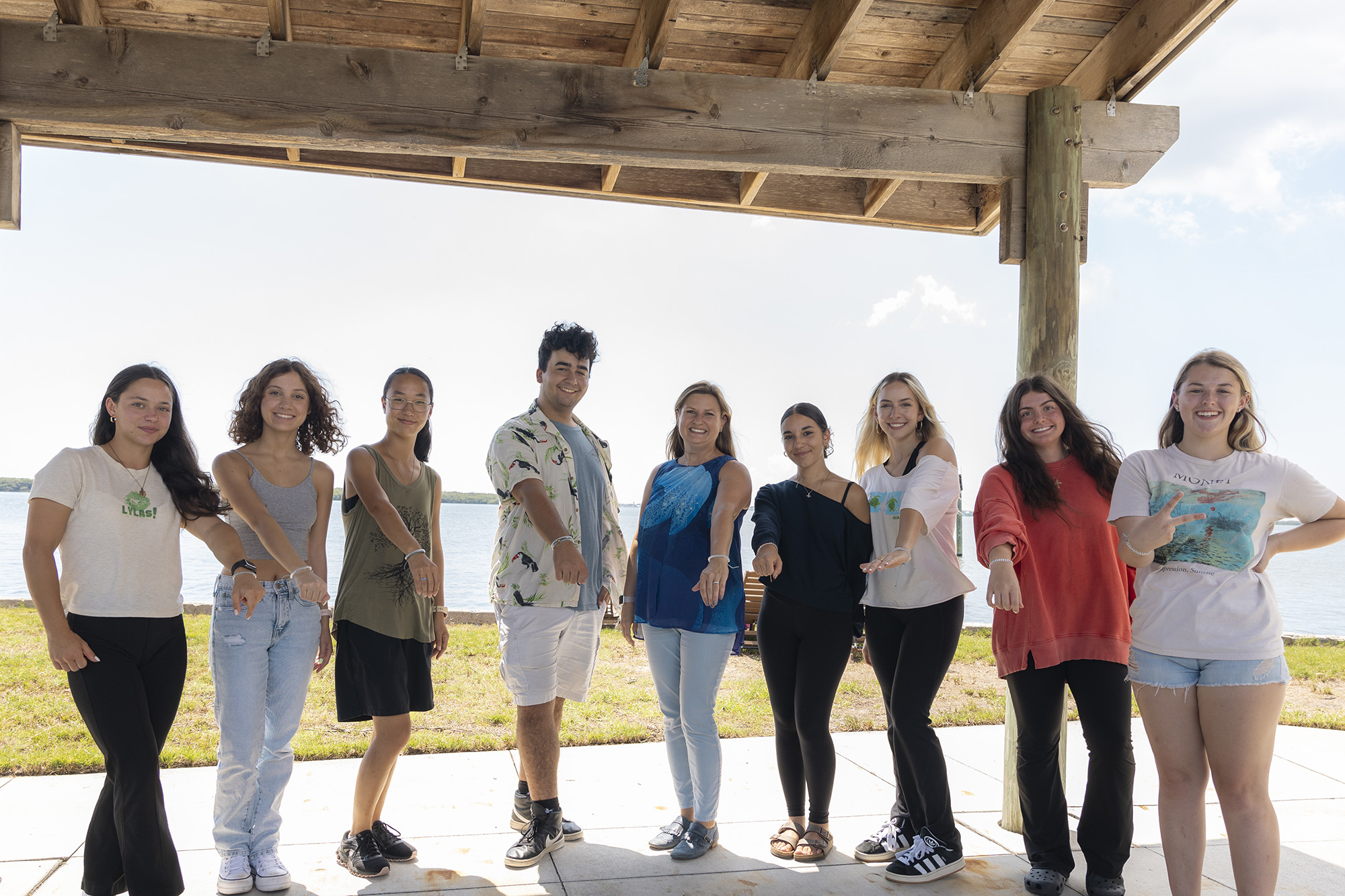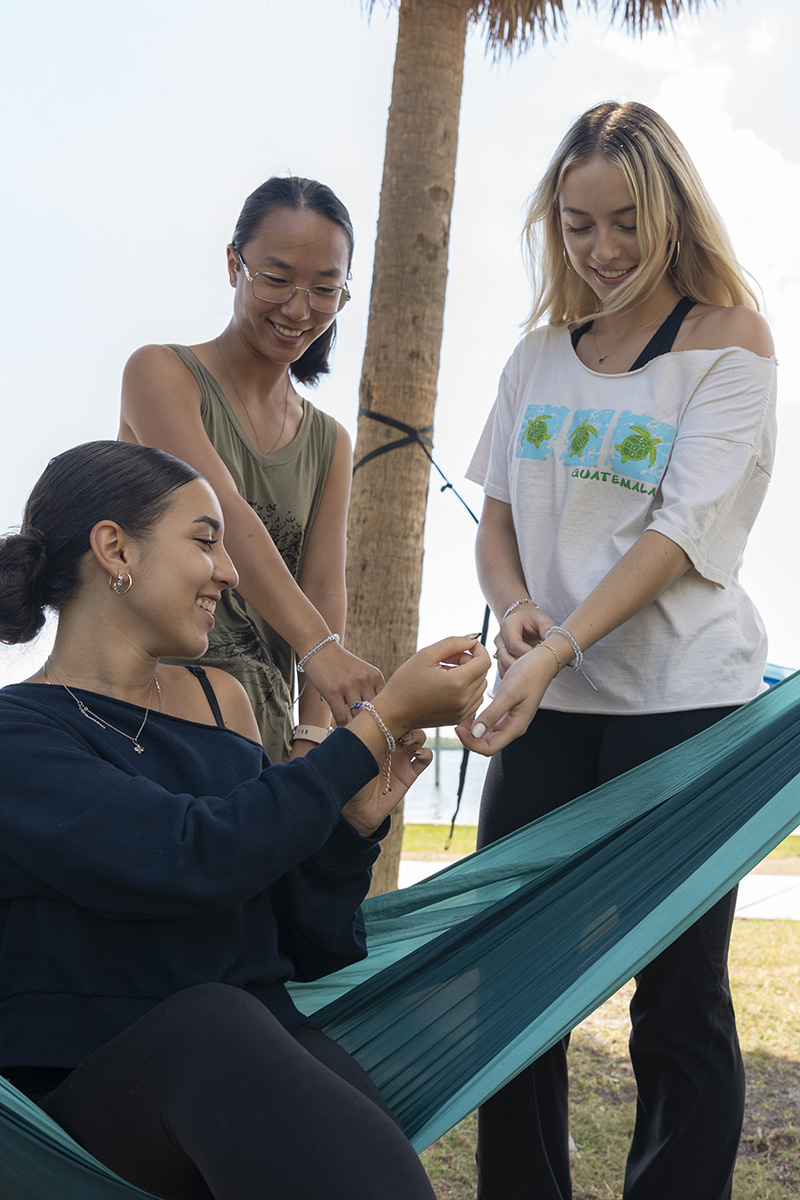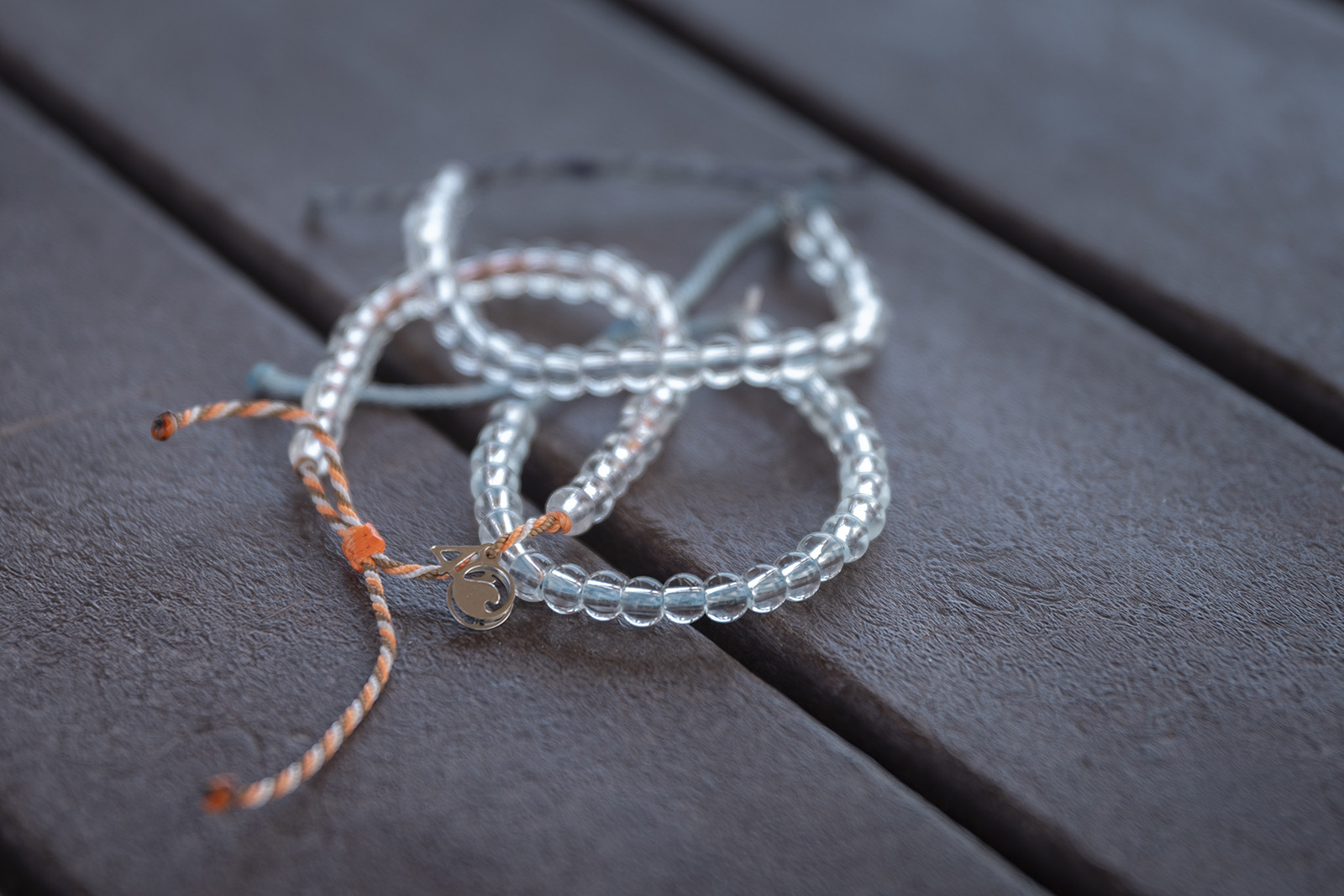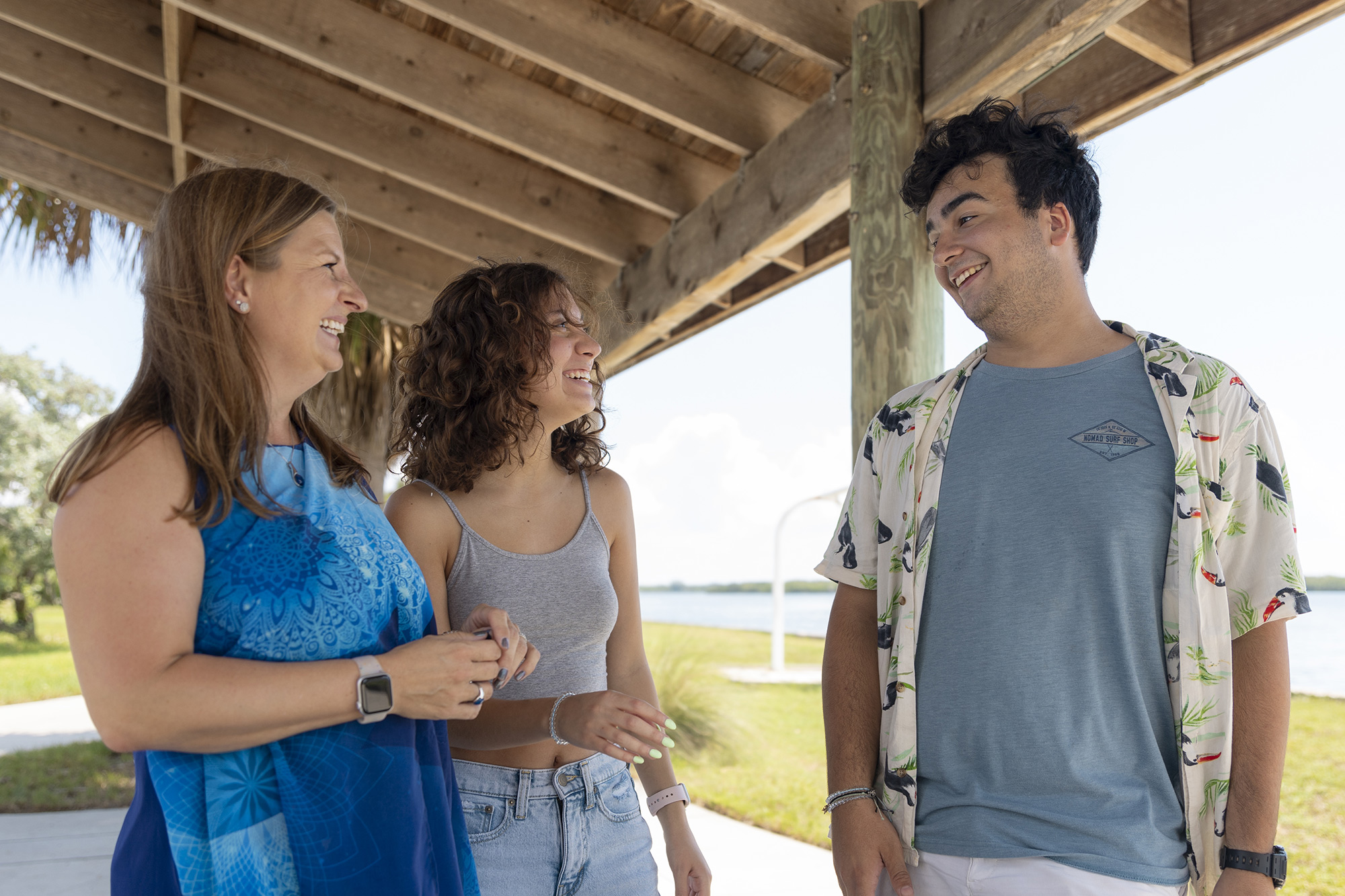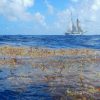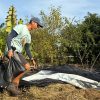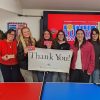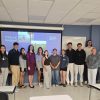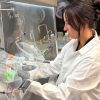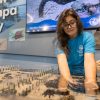The bracelets aren’t dazzling or glittery or expensive. Most cost about $24. But it’s the story they tell that makes them valuable.
Eckerd College Visiting Assistant Professor of Marketing Nina Bergbrant regularly incorporates bracelets—and the company that makes them—into her Principles of Marketing classes. “This is way more than a bracelet,” she says. “This is one of the best examples out there of using a product for storytelling to help spread a message.”
That message is brought to you by 4ocean, a Boca Raton–based for-profit business dedicated to ending the ocean plastic crisis, one bracelet at a time. The company collects trash from oceans, rivers and coastlines and converts it into products such as bracelets, building materials or fuel, which it then sells. Anything the company can’t recycle is sent to a local landfill. Besides in Florida, 4ocean has cleanup teams in Guatemala and Indonesia.
Since 4ocean was founded in 2017, the company’s website says, more than 37 million pounds of trash have been removed from the world’s waterways. To pay for that removal, the company sells products—mostly inexpensive jewelry made from recycled material. “This is how our first product, the 4ocean bracelet, was born,” the website says. “Every bracelet purchased funds the removal of 5 pounds of trash from the ocean and coastlines.”
Bergbrant says she not only tries to weave sustainability into her classes, she stresses with her students the importance of transparency.
“I pulled up information about 4ocean and said, ‘Let’s take a look at this company.’ Most people knew nothing about what 4ocean does. Then the bracelets popped up and we did a deeper dive. We educated ourselves as a class. What else does 4ocean do? Besides cleaning up the oceans, they’re creating jobs and they’re able to make consumers aware of how anybody can have a positive impact.
“I think the bracelets are marketing genius,” she adds. “They’re a tangible product that consumers can buy and form a connection with. They wear it and are reminded of the importance of ocean cleanup and the impact their purchases made. In addition, it’s a storytelling device for them to share about 4ocean’s mission when someone comments or asks about the bracelet.”
Over the summer, Bergbrant earned a shipment of about 150 free bracelets through a 4ocean teachers appreciation initiative. She submitted a statement about how she incorporated teaching about sustainability and the bracelets into her marketing instruction. “I ordered enough so that all my Autumn Term students in Successful Marketing Through Storytelling and the Principles of Marketing students in my fall and spring semester classes can have one.”
Before learning about 4ocean, Paula Greenlaw—a first-year marketing student from Saint Charles, Missouri, who was in Bergbrant’s Successful Marketing Through Storytelling Autumn Term class—had seen the bracelets on other people’s wrists without knowing their story. “Learning about 4ocean’s purpose and mission behind their brand felt inspiring,” Paula says. “The more I was told about 4ocean, the more I wanted to buy my own bracelet. And seeing my professor bring out a bag of them for us to keep was very exciting for everyone.”
For Gelson Correa Jr., a first-year marine science student from Contoocook, New Hampshire, Bergbrant’s Autumn Term course offered a chance to reconnect. “I have always loved 4ocean,” Gelson explains. “I’ve been watching them since 2018 and I loved seeing them grow. I fell out of the loop during COVID and only came back to them when Professor Bergbrant gave us the 4ocean bracelet. I’m glad to see that 4ocean is still staying true to their message and has expanded exponentially.”
As for 4ocean, the company is grateful for the recognition. “We are deeply honored to support Professor Bergbrant’s innovative approach to sustainability education by incorporating our 4ocean bracelets into her courses,” says Tony Ernst, director of cleanups for 4ocean.
“These bracelets are made from plastic that was removed from the ocean by our full-time captains and crews, and it’s inspiring to see educators like her using tangible symbols of ocean cleanup to engage students and raise awareness about environmental issues.
“Together, we’re fostering a new generation of environmentally conscious individuals who are not only learning about sustainability but actively contributing to the solution.”

